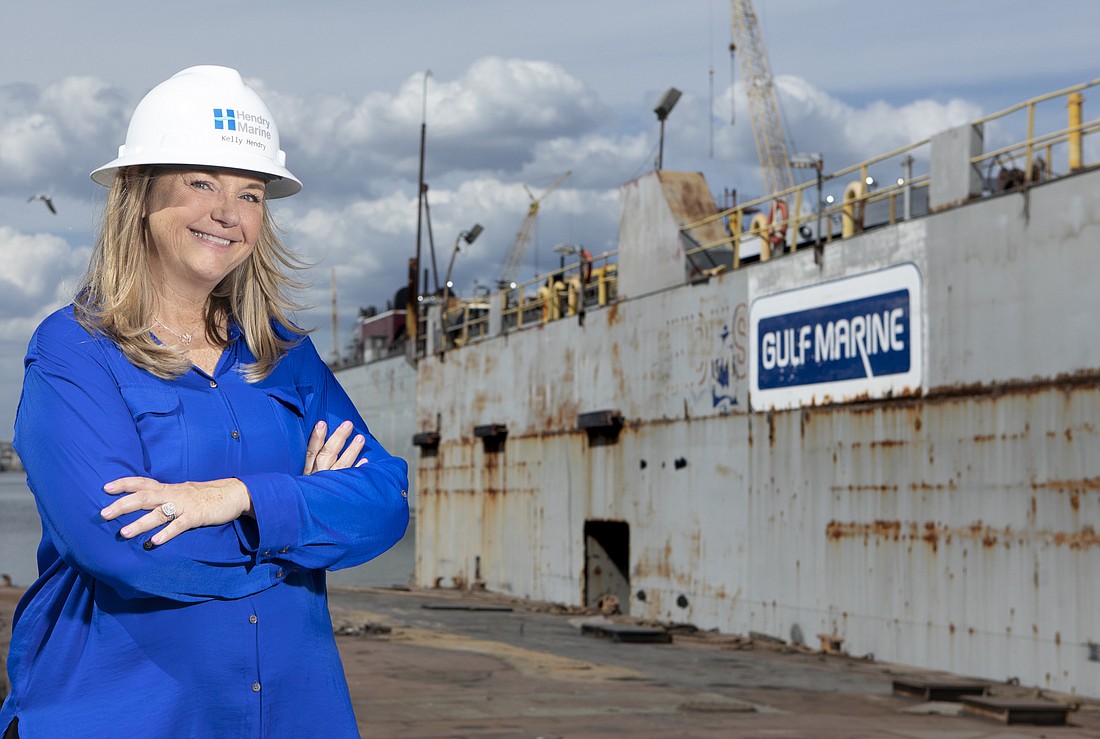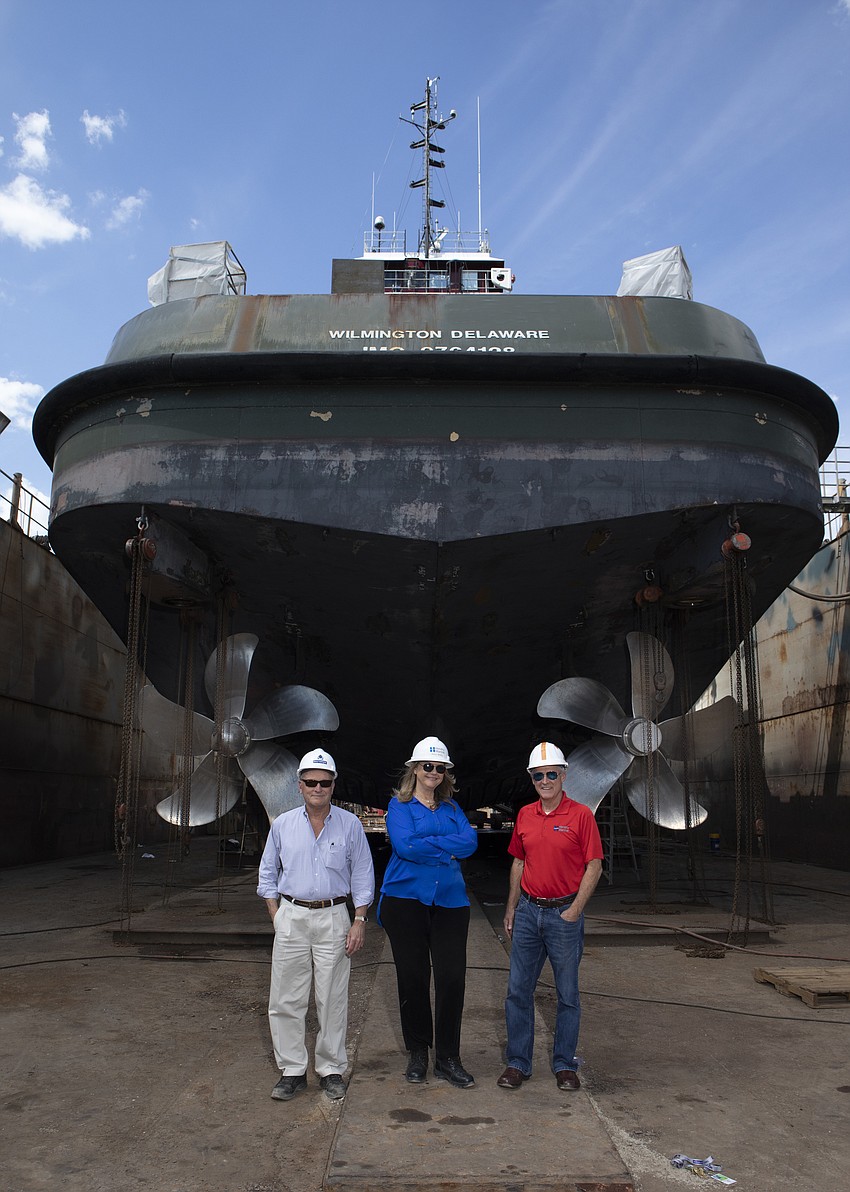- July 26, 2024
-
-
Loading

Loading

Kelly Hendry’s business career, starting in 1983, follows a logical path for about two decades: assistant investment officer at First Florida Bank, various positions with Merrill Lynch Capital Markets, executive recruiter with a consulting company.
Around 2005, her resume gets, shall we say, interesting.
“When I decided to have children, believe it or not, I went back to school and got a master’s in education and worked as a classroom teacher for many years,” Hendry says. “That’s what I was doing when all of this occurred.”
The “all of this” to which Hendry refers is the series of unexpected events that propelled her to the presidency of Hendry Marine Industries Inc., one of Tampa’s most venerable shipyards, and its holding company and family office, Hendry Holdings LLC.
Founded in 1926 by Hendry’s grandfather, today Hendry Marine Industries consists of Gulf Marine Repair Corp., Universal Environmental Solutions LLC, Port Hendry Terminals, Port Staffing Inc. and Anchor Sandblasting and Coatings LLC. The company has been involved in many pivotal Tampa Bay construction and engineering projects, including the Sunshine Skyway Bridge and Port Manatee.
“We’ve gone through a few iterations,” Hendry says of the company, though she could just as easily be referring to her career. “But at this time, the shipyard is our primary operation.”
Hendry never thought leading the family business would be her primary operation — she figured that responsibility would go to one of her three brothers — but the ties that bind us to parents and siblings can be powerful motivation for self-reinvention. What led her to make the leap, and with the company generating a record $80 million in gross revenue in 2022, how has she done it so successfully while avoiding the pitfalls of being in business with family members?
“The first thing I learned to do was to separate the emotions from the data, the facts and the business issues,” Hendry says. “The main drumbeat that I’ve been pushing is data-driven decision making and making sure we have the right tools and we're looking at the right data. If that’s not the way you did it 30 years ago, too bad.”
Institutional resistance to change was a major challenge,” she says. “I learned that you can’t go at that head-on. You have to make incremental progress and bring your team members along." –Kelly Hendry, president of Hendry Marine Industries Inc.
Hendry’s father, Aaron Hendry, ran the company until he died in 2016. Hendry Holdings was formed, in part, to manage and oversee his complex estate. Kelly Hendry was brought on as president of Hendry Holdings in 2017, and in 2019 she assumed leadership of the entire organization. Of the four siblings, she was the only one who had an extensive background in business, so it fell to her to take up her father’s mantle.
“Institutional resistance to change was a major challenge,” she says. “I learned that you can’t go at that head-on. You have to make incremental progress and bring your team members along. But the company was always run in a patriarchal way, like, ‘This is the way we’re going to do it.’ We had to evolve into a more open management style.”
She adds, “I am not my father. I will never fill Aaron Hendry’s shoes; he was legendary. However, I went about it by being quiet, keeping my mouth shut and learning all I could from the people around me before I began to make bold statements about the direction and strategy of the companies.”

Something else that's helped Hendry succeed is her father’s reorganization of the company, in 2014. He created a formal board of directors made up of non-family members who don’t work for the company. He also created a more informal advisory board that consists of people he knew well and respected. Then, when Kelly Hendry came aboard to run Henry Holdings LLC, she helped create a separate board of directors for that organization.
“I’ve been told our corporate structure is insanely complicated,” she says.
That setup, though, ensures that big decisions are made in logical, data-driven ways that are as devoid of emotion and sentiment as possible — and smart decision-making has become crucial as the company has grown in recent years. Today it employs about 300 people year-round but that number can swell to around 500 because of the specialized contract labor that Hendry Marine Industries brings in for certain jobs.
“The supply of skilled labor has been a monumental challenge,” Hendry says. “But we’ve been training in-house, and we’re implementing structured programs where you can come in as a low-skilled or even unskilled worker and go to our on-site training center for a year or two and gain certifications and go up in income.”